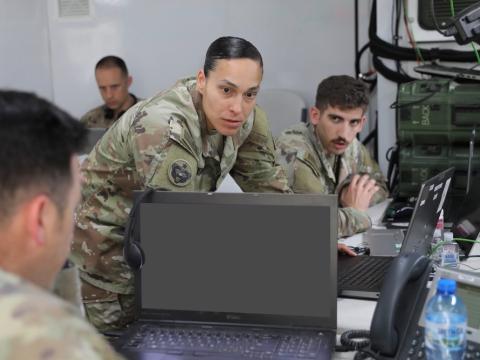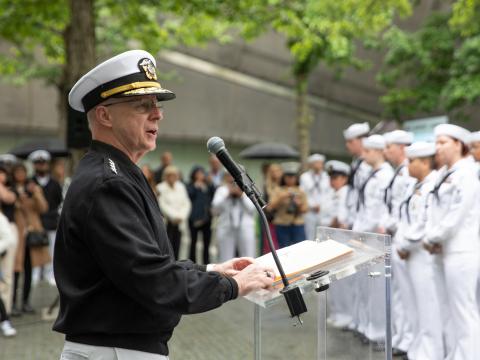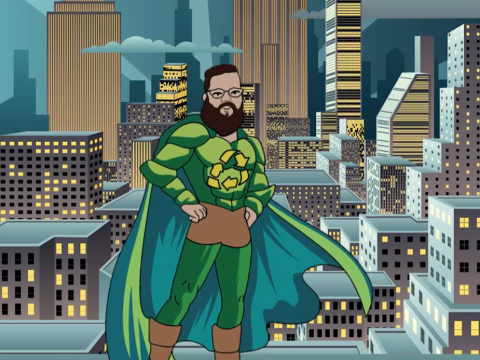National Security Depends on Collaboration Between Government and Nongovernmental Organizations
Experts representing a wide variety of groups took on the topic of military, agency and nongovernmental organizations (NGOs) cooperation in future security efforts, pointing out that national security involves not only warfare but also the creation of good relationships among nations. At the Wednesday morning Joint Warfighting Conference panel, participants agreed that the military services have taken on many responsibilities that are not part of their traditional mission. However, the steps that need to be taken to address this issue are many and complicated, they concurred.
Experts representing a wide variety of groups took on the topic of military, agency and nongovernmental organizations (NGOs) cooperation in future security efforts, pointing out that national security involves not only warfare but also the creation of good relationships among nations. At the Wednesday morning Joint Warfighting Conference panel, participants agreed that the military services have taken on many responsibilities that are not part of their traditional mission. However, the steps that need to be taken to address this issue are many and complicated, they concurred.
Providing more specific examples, panel moderator Gen. Anthony C. Zinni, USMC (Ret.), former commander of U.S. Central Command, said that his observations in Afghanistan and Iraq were that the military was involved in everything from agriculture to zoos. The reason was simple: the jobs needed to be done. However, after some time, the concern became who would continue to conduct this work once the military leaves, the general related. Increasing cooperation among the military, government agencies and NGOs will both relieve the armed services of some of these responsibilities and hand them over to organizations well-equipped to handle them.
Dr. Heather Hanson, director, public affairs, Mercy Corps, proposed that the goals of the military and NGOs sometimes differ. However, they share one common goal: to secure peace and prevent future conflict. Although it is important for the NGOs to work closely with the military, it is just as important that NGO members are not viewed as force multipliers as this can be counterproductive, Hanson said.
Len Hawley, former deputy assistant secretary of state, revealed that cooperative security planning is the subject of a document titled the "Military Contribution to Cooperative Security Joint Operating Concept." Input for the concept recognized that standard operating procedures in the military, government and NGO communities differ so greatly that they get in the way of collaborative efforts. While it is easy to say that organizations must cooperate, it is not easy to do, he stated.
U.S. Africa Command (AFRICOM) was once again lauded as one innovative way to address new and different security threats. Panel member Ambassador Mary C. Yates, deputy to the commander, civil-military activities, AFRICOM, explained that the command was build on the idea of developing different ways to address asymmetric threats. "From the beginning, the command was designed to be integrated, merging some of activities from other combatant commands," prevent conflict and grow the capacity of our partners, Yates said. The command also is reaching out to NGOs, she added.




Comments